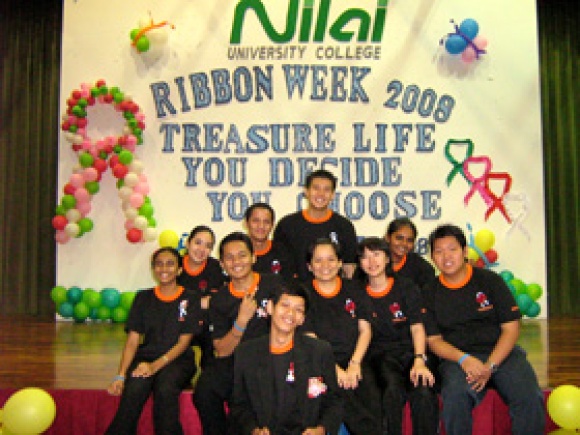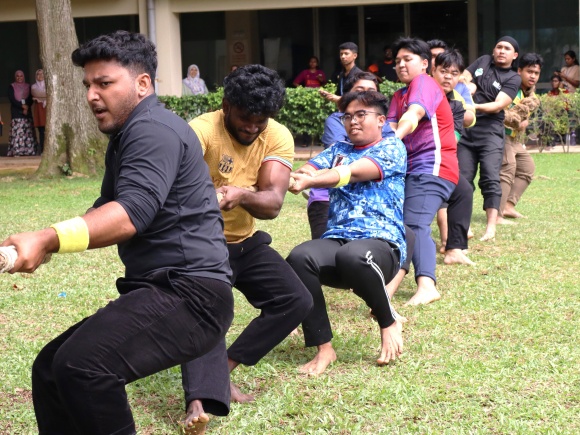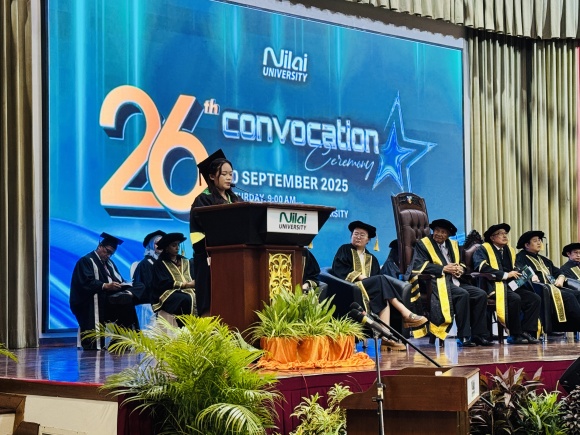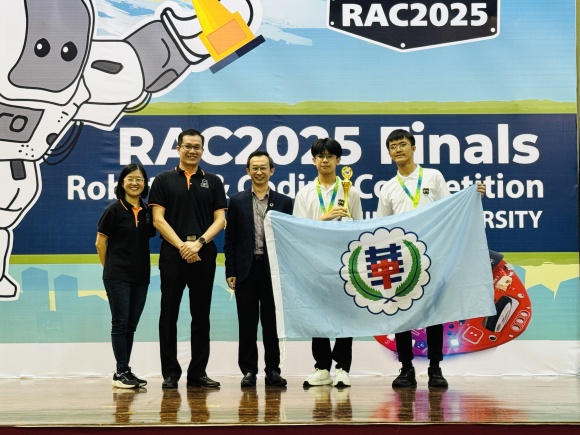Four different colours – four different causes: White for Maternal and Child Health, pink for Breast Cancer, green for Organ Donation, and red for AIDS and HIV. These were the four main themes at Nilai University College's (Nilai UC) annual Ribbon Week, which was held from 22nd to the 25th September 2008. Nilai UC's Diploma in Nursing Student Organisation (DINSO) organised the event and this is yet another example of the institute's commitment towards community projects for the benefit of not just its staff and students but also the public at large (event was open to the public).
Besides the usual exhibition booths, the organizers went to great lengths to get noted speakers from UNICEF, MAKNA, National Transplant Resource Centre and the Malaysian AIDS Council to speak on the respective subjects. Students and staff got to hear first hand about the traumatic yet inspiring experiences of a breast cancer survivor. Pn Saleha spoke of her chemotherapy but told the assembled audience that her will to live saw her through. However, the most important point she made was that breast cancer does not discriminate and that all women, young or old, was at risk. This made MAKNA's Habiba Abdul Rahman’s talk and demonstration on how to perform self-examination for breast cancer all the more significant. Students were all eyes and ears as they were told that early detection is key to beating breast cancer.
Representatives from the Malaysian AIDS Council also warned students about the dire consequences of unsafe and random sex. Fact remains that despite advances in the treatment of the HIV virus, there is still no cure for AIDS and it is ultimately a fatal disease, which is affecting ever-greater number of people throughout the world. Although Malaysia has still a relatively low incidence of HIV cases, the numbers are still on the rise. Health Ministry statistics from June last year reveal that almost 38% of the 73,427 HIV cases involve youngsters between the age of 13 and 29. A lack of knowledge is a huge contributing factor in the spread of HIV and the related stigma, with cultural sensitivities often preventing an open discussion. Hence it is important that more events such as Nilai UC's Ribbon Week are held to ensure that the message gets through to the youth of today.
It was also encouraging to see students signing up to be organ donors. The message that they could save a life just by carrying an organ donor card obviously got through to the students. They were also made acutely aware the heavy responsibility of motherhood and childcare by UNICEF’s Youssouf Omar who spoke on the hardships on both mother and child. In particular, he stressed how unplanned pregnancies can lead to abortions or child abandonment. Thus he stressed to the young adults in the audience to think their actions through, as the consequences are great for them and society at large.
In all, Nilai UC's Ribbon Week is growing from strength to strength and looks to be a permanent feature on its calendar. "We take our role as educators very seriously. The education also extends beyond the lecture theaters and our students are our greatest assets. The process of producing well-rounded individuals will require more than just textbook education and we feel events such as this will go a long way towards moulding them into model citizens of the future," said Dato' Sothi Rachagan, Vice President of Nilai UC Academic Affairs.




